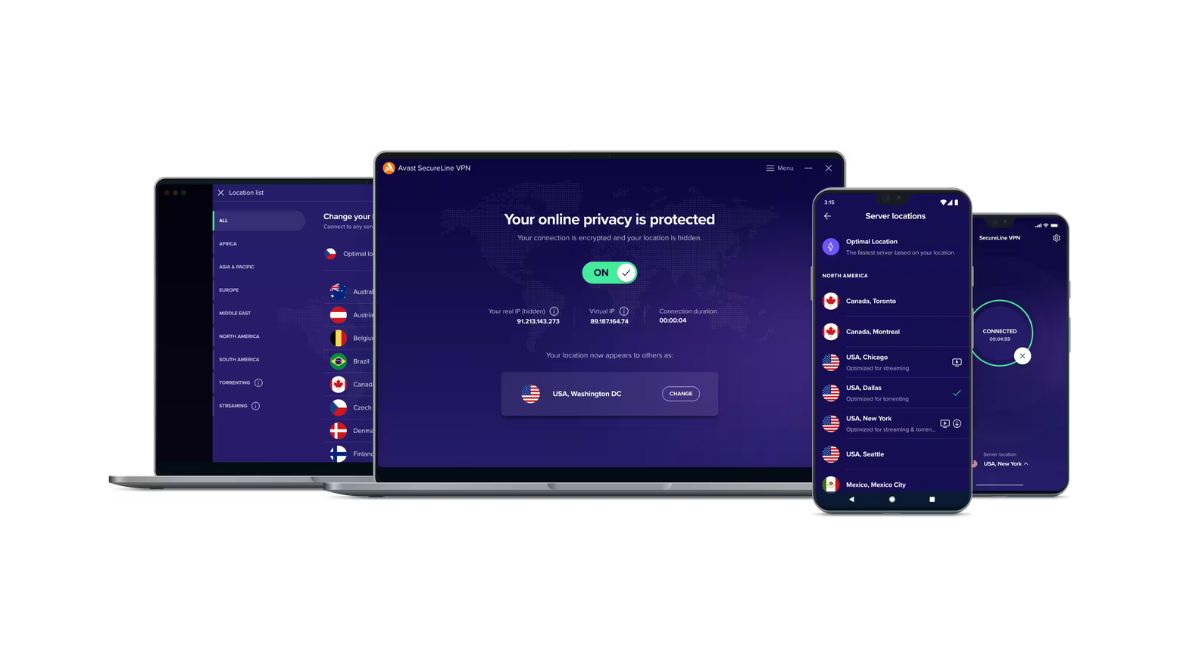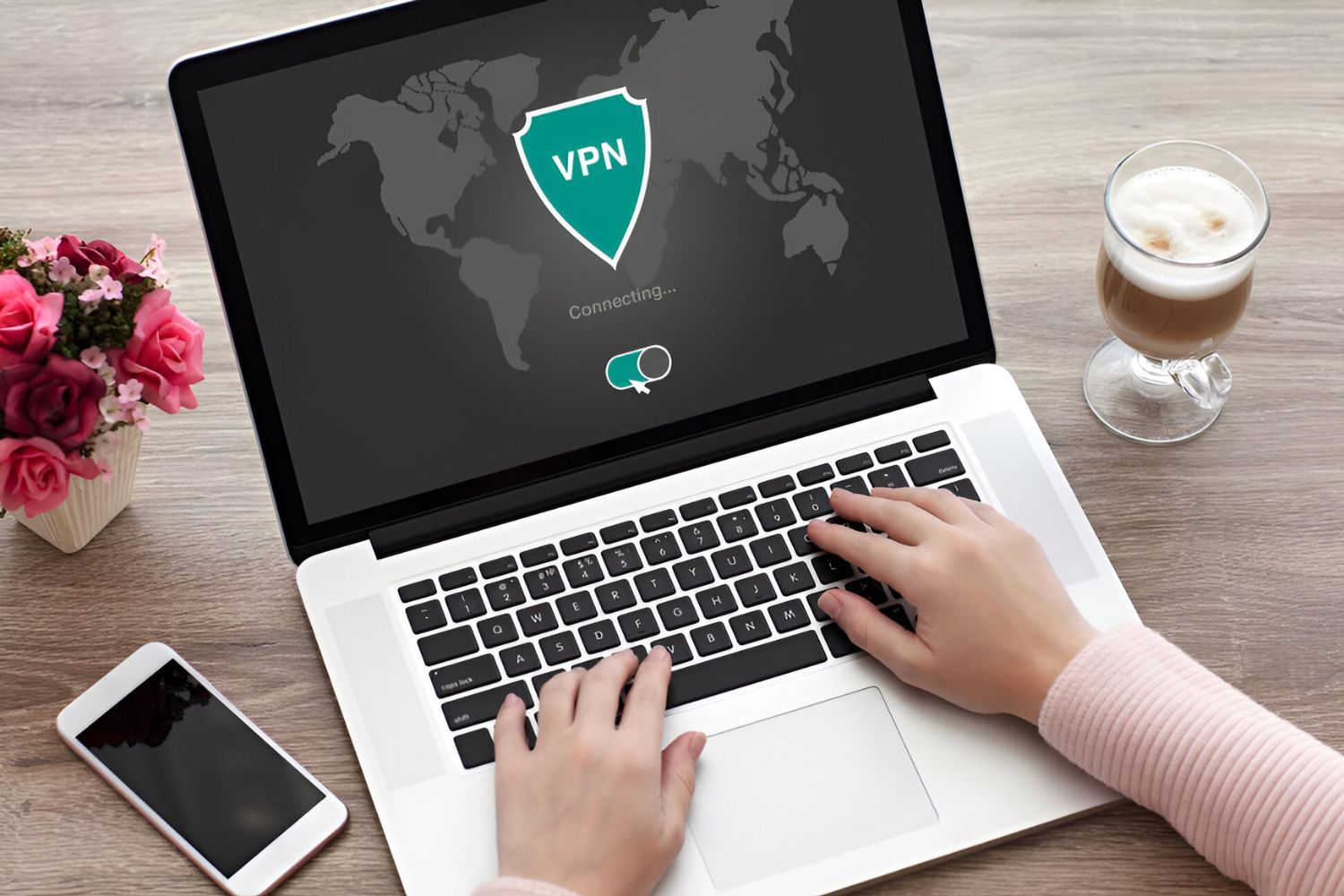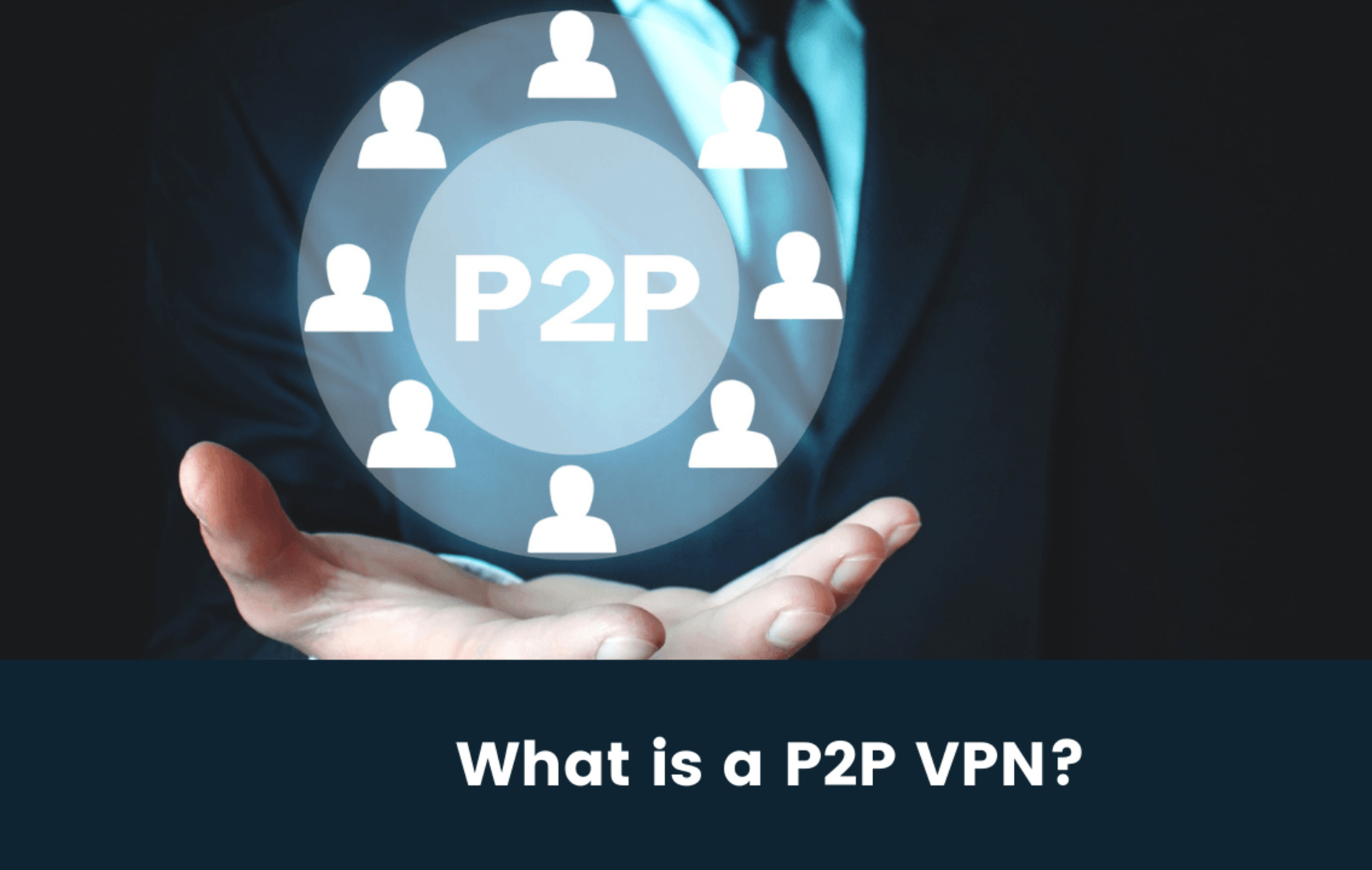Introduction
A Peer-to-Peer Virtual Private Network (P2P VPN) is a network technology that allows users to securely connect and communicate with each other over the internet. Unlike traditional VPNs that rely on centralized servers, P2P VPNs utilize a distributed network architecture where all participants act as both clients and servers. This decentralized approach offers numerous advantages, including enhanced privacy, improved performance, and greater resistance to censorship and surveillance.
With the increasing concerns about online privacy and data security, P2P VPNs have gained popularity among individuals and organizations looking for ways to protect their internet activities. Whether you’re a remote worker, a frequent traveler, or simply a privacy-conscious internet user, understanding the concept and benefits of P2P VPNs can help you make informed decisions about your online security.
In this article, we will explore what exactly a P2P VPN is, how it works, and the benefits it offers. We will also discuss some common use cases for P2P VPNs, tips for choosing the right P2P VPN provider, and how to set up and use a P2P VPN effectively.
So, whether you’re a beginner or have some prior knowledge about VPN technology, read on to gain a deeper understanding of P2P VPNs and how they can help safeguard your online privacy and security.
What is a P2P VPN?
A Peer-to-Peer Virtual Private Network (P2P VPN) is a type of VPN that operates on a decentralized network architecture. Unlike traditional VPNs, which route all internet traffic through a central server, P2P VPNs establish direct connections between users, allowing them to exchange data securely and privately.
With a P2P VPN, each participant acts as both a client and a server, contributing to the network’s functionality. This distributed approach eliminates the need for a single point of failure or control, making P2P VPNs more resilient against censorship, surveillance, and other security threats.
One key aspect of P2P VPNs is their ability to encrypt data traffic, creating a secure tunnel between users. This encryption ensures that the information exchanged remains confidential and cannot be intercepted or read by unauthorized individuals, providing a higher level of privacy and security.
Additionally, P2P VPNs allow users to bypass geographic restrictions and access region-locked content. By routing internet traffic through nodes located in different regions, users can appear as if they are browsing from another country, circumventing limitations imposed on certain websites or streaming platforms.
It’s important to note that while P2P VPNs share similarities with peer-to-peer file sharing networks, they are not the same. P2P VPNs are designed specifically for secure internet communication, while peer-to-peer networks primarily facilitate the sharing of files between users.
In summary, a P2P VPN is a decentralized network technology that enables users to establish secure connections with other participants, encrypting data traffic and enhancing privacy and security. By using a P2P VPN, individuals can protect their online activities, access restricted content, and enjoy a greater level of internet freedom.
How does a P2P VPN work?
A Peer-to-Peer Virtual Private Network (P2P VPN) works by creating a decentralized network where participants can establish direct connections with each other. Unlike traditional VPNs that rely on a central server, P2P VPNs utilize a peer-to-peer network architecture, with each participant acting as both a client and a server. Let’s explore how this process unfolds:
- Connection establishment: To join a P2P VPN network, participants must install VPN software or client applications. These applications act as the interface for establishing connections with other participants in the network. Once connected, the P2P VPN software assigns a unique identifier to each participant, enabling them to exchange data securely.
- Routing: When a user wants to access a website or sends data across the network, the P2P VPN software breaks down the information into packets and encrypts them. These encrypted packets are then routed through multiple nodes within the network, forming a chain of connections, similar to how data travels in a traditional VPN. However, in a P2P VPN, each participant contributes to this routing process by forwarding packets to the next node, creating a distributed network infrastructure.
- Encryption: As the data packets travel through the network, they are encrypted to ensure their confidentiality and integrity. Encryption algorithms, such as AES (Advanced Encryption Standard), are used to scramble the data, making it unreadable to unauthorized individuals. By encrypting the data, P2P VPNs provide a secure tunnel for communication, protecting sensitive information from eavesdroppers or hackers.
- Decentralized verification: In a P2P VPN, verification and authentication processes are decentralized. Each participant can verify the authenticity of the encrypted packets they receive by checking the cryptographic signatures embedded within the data. This distributed verification ensures that the data originates from the expected source and hasn’t been tampered with during transmission.
- Dynamic routing: P2P VPNs employ dynamic routing algorithms to determine the most efficient path for data transmission. These algorithms take into account factors like network congestion, latency, and bandwidth availability to ensure optimal performance. By dynamically adapting the routing paths, P2P VPNs can maintain a high level of efficiency and reliability within the network.
Overall, the decentralized nature of P2P VPNs allows participants to create a network where each user contributes to the operation and security of the overall system. This self-governing approach enhances privacy, security, and performance, making P2P VPNs a popular choice for individuals and organizations seeking a robust and scalable VPN solution.
Benefits of using a P2P VPN
Using a Peer-to-Peer Virtual Private Network (P2P VPN) offers several advantages for individuals and organizations looking to enhance their online privacy, security, and internet freedom. Let’s explore some of the key benefits of using a P2P VPN:
- Enhanced privacy: P2P VPNs encrypt all data traffic, making it nearly impossible for anyone to intercept or decipher your online activities. By using strong encryption algorithms, P2P VPNs ensure that your sensitive information, such as passwords, financial transactions, and browsing history, remains private and secure.
- Improved security: With P2P VPNs, your internet communications are protected from hackers, identity thieves, and other cyber threats. By creating a secure tunnel between your device and the destination server, P2P VPNs prevent unauthorized access to your data, adding an additional layer of security to your online presence.
- Anonymous browsing: P2P VPNs hide your IP address, making it difficult for websites, advertisers, and other third parties to track your online activities. By masking your real IP address with the IP address of the VPN server, P2P VPNs allow you to browse the internet anonymously, preserving your privacy and preventing targeted advertising.
- Access to geographically restricted content: P2P VPNs enable you to bypass regional restrictions, allowing access to websites, streaming services, or content that may be blocked in your current location. By connecting to a VPN server in a different country, you can appear as if you are browsing from that location, enabling you to access region-locked content.
- Protection on public Wi-Fi: Using public Wi-Fi networks can expose your data to potential security risks. P2P VPNs encrypt your data traffic, ensuring that your confidential information, such as passwords and financial details, remains protected even when connected to insecure public Wi-Fi hotspots.
- Resistance to censorship and surveillance: P2P VPNs operate on a decentralized network, making it difficult for governments, ISPs, or third parties to block or censor your internet activities. By dispersing network traffic across multiple nodes, P2P VPNs provide a greater level of resistance to censorship, surveillance, and other forms of internet control.
Overall, using a P2P VPN offers a range of benefits, including enhanced privacy, improved security, anonymous browsing, access to geo-restricted content, protection on public Wi-Fi networks, and resistance to censorship. Whether you’re concerned about online privacy, security, or accessing unrestricted content, a P2P VPN can help you safeguard your digital presence and enjoy a more secure and unrestricted internet experience.
Common use cases for P2P VPNs
Peer-to-Peer Virtual Private Networks (P2P VPNs) are versatile tools that can be used in various scenarios to improve online privacy, security, and access. Let’s explore some of the common use cases for P2P VPNs:
- Remote work: P2P VPNs are ideal for remote workers who need to access their company’s resources securely from different locations. By connecting to a P2P VPN, remote employees can establish a secure connection to their organization’s network, ensuring that sensitive data remains protected during remote work sessions.
- Streaming and accessing content: P2P VPNs allow users to bypass geographic restrictions and access streaming platforms and region-restricted content. Whether you’re traveling abroad or simply want to access content from another country, connecting to a P2P VPN server in the desired location enables you to enjoy unrestricted access to your favorite shows, movies, and websites.
- Anonymous browsing: P2P VPNs are commonly used by individuals who prioritize their online privacy and want to browse the internet anonymously. By masking your IP address, P2P VPNs prevent websites, advertisers, and other third parties from tracking your online activities, ensuring a higher level of privacy while surfing the web.
- Torrenting and file sharing: P2P VPNs are often utilized by individuals who engage in torrenting or peer-to-peer file sharing. By encrypting data traffic and hiding IP addresses, P2P VPNs provide an added layer of security and anonymity while downloading or sharing files through such platforms, protecting users from potential legal and privacy issues.
- Gaming: P2P VPNs can enhance the gaming experience for gamers by reducing latency and providing a more stable connection. By connecting to a P2P VPN server with optimized gaming routes, gamers can experience faster and more reliable gameplay, particularly in online multiplayer games.
- Public Wi-Fi security: P2P VPNs are valuable when using public Wi-Fi networks, which are often unsecured and vulnerable to hackers. By encrypting data traffic, P2P VPNs protect users from potential eavesdropping and unauthorized access, ensuring that their sensitive information remains secure even on public Wi-Fi hotspots.
These are just a few examples of the common use cases for P2P VPNs. Whether you’re a remote worker, a frequent traveler, a streaming enthusiast, or simply someone who values online privacy and security, a P2P VPN can provide a versatile solution to meet your specific needs in the digital realm.
Choosing the right P2P VPN provider
When selecting a Peer-to-Peer Virtual Private Network (P2P VPN) provider, it’s essential to consider several factors to ensure you make an informed decision. Here are some key considerations to help you choose the right P2P VPN provider:
- Security and Privacy: Look for a P2P VPN provider that prioritizes security and privacy. Ensure that they use strong encryption protocols, have a strict no-logs policy, and employ robust security measures to protect your data and online activities from potential threats.
- Server Locations: Check the provider’s server locations and ensure they offer servers in the regions you require. Having a diverse network of servers allows you to bypass geographic restrictions and access content from different countries.
- Bandwidth and Speed: Consider the provider’s bandwidth limitations and connection speeds. If you engage in activities that require high data transfer rates like streaming, gaming, or torrenting, opt for a P2P VPN provider that offers unlimited bandwidth and consistently fast speeds.
- Compatibility and User Experience: Evaluate the user experience and ensure the provider offers user-friendly VPN applications compatible with your devices and operating systems. A well-designed interface and intuitive user experience can significantly enhance your overall VPN usage.
- Customer Support: Look for a P2P VPN provider that offers reliable customer support. Check for 24/7 access to technical assistance, whether through live chat, email, or phone. Knowledgeable and responsive customer support is essential in case you encounter any issues or have questions about the service.
- Pricing and Payment Options: Compare pricing plans and payment options offered by different providers. Look for a balance between affordability and the features offered. Additionally, consider providers that offer flexible payment options, such as monthly or annual subscriptions, to suit your specific needs.
- Reviews and Reputation: Research the reputation and reviews of the P2P VPN provider you’re considering. Look for feedback from current or past users to gauge their experiences and satisfaction with the service. Reliable reviews can provide valuable insights into the provider’s reliability, performance, and customer support.
By considering these factors, you can choose a P2P VPN provider that aligns with your needs and provides the necessary features and security for your online activities. Take the time to evaluate and compare different options to find the provider that best meets your requirements for privacy, security, performance, and user experience.
Setting up and using a P2P VPN
Setting up and using a Peer-to-Peer Virtual Private Network (P2P VPN) is a straightforward process. Follow these general steps to get started:
- Choose a P2P VPN provider: Select a reliable P2P VPN provider that meets your specific requirements for security, privacy, server locations, and other key factors.
- Sign up and download the VPN software: Sign up for an account with the chosen P2P VPN provider and download the VPN software or client application suitable for your device and operating system.
- Install and launch the VPN software: Install the VPN software on your device and launch the application. Follow any on-screen prompts for installation and configuration.
- Select a VPN server: Once the VPN software is running, select a server from the list provided by the provider. Choose a server location that aligns with your intended purposes, whether it’s bypassing geo-restrictions, enhancing privacy, or accessing region-specific content.
- Establish a VPN connection: Click on the Connect button or similar option within the VPN software to establish a connection to the selected server. The VPN software will handle the connection process, encrypting your data and establishing a secure tunnel to protect your online activities.
- Verify your connection: After the VPN connection is established, verify that your connection is secure by ensuring your IP address has changed and that your online activities are protected. You can use online tools or visit websites that display your IP address to confirm.
- Use the internet as usual: Once connected to the P2P VPN, continue using the internet as you normally would. All your online activities, including browsing, streaming, or file sharing, will now be routed through the VPN server, providing enhanced privacy, security, and access.
- Disconnect from the VPN: When you no longer need the VPN, simply disconnect from the server by clicking the Disconnect or similar option within the VPN software. This will revert your internet connection back to your regular ISP-provided connection.
Remember to keep your VPN software updated and take advantage of any additional features or settings offered by the provider to further enhance your VPN experience.
With these steps, you can effectively set up and use a P2P VPN to safeguard your online activities, access restricted content, and enjoy a greater level of privacy and security while connected to the internet.
Conclusion
Peer-to-Peer Virtual Private Networks (P2P VPNs) are an invaluable tool for anyone looking to enhance their online privacy, security, and internet freedom. With their decentralized network architecture and encryption capabilities, P2P VPNs provide a secure and private means of communication over the internet.
In this article, we explored what P2P VPNs are and how they work. We discussed the benefits of using a P2P VPN, including enhanced privacy, improved security, access to geographically restricted content, and protection on public Wi-Fi networks. Furthermore, we looked at common use cases for P2P VPNs, such as remote work, streaming, file sharing, and gaming.
When choosing a P2P VPN provider, it’s important to consider factors like security, server locations, bandwidth, user experience, customer support, pricing, and reputation. By evaluating these criteria, you can select a P2P VPN provider that meets your specific needs.
In terms of setting up and using a P2P VPN, the process involves choosing a provider, signing up, downloading the VPN software, selecting a server, establishing a connection, verifying the secure connection, and using the internet as usual with enhanced privacy and security. Remember to disconnect from the VPN when you no longer need its protection.
Overall, P2P VPNs offer a versatile and powerful solution for individuals and organizations seeking to protect their online activities, access restricted content, and maintain a higher level of privacy and security. By understanding the concepts and practices of P2P VPNs, you can leverage their benefits to enjoy a safer, more secure, and unrestricted experience on the internet.

























